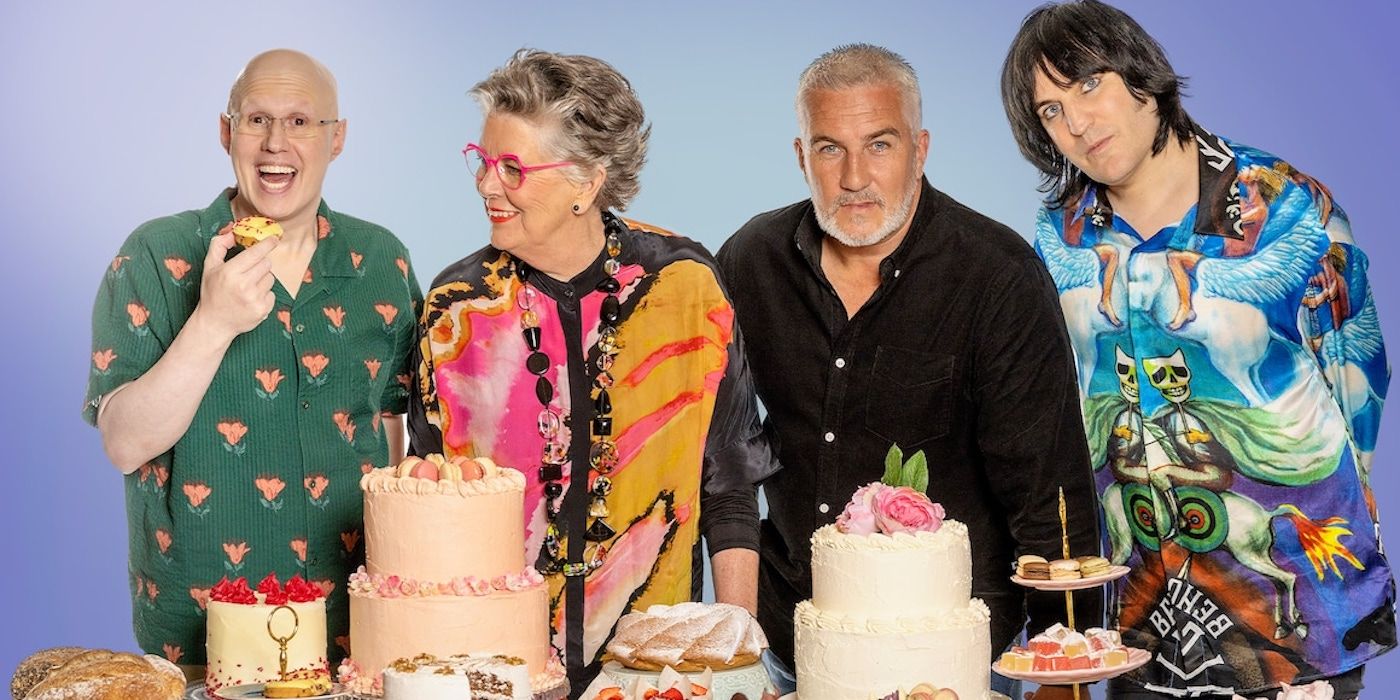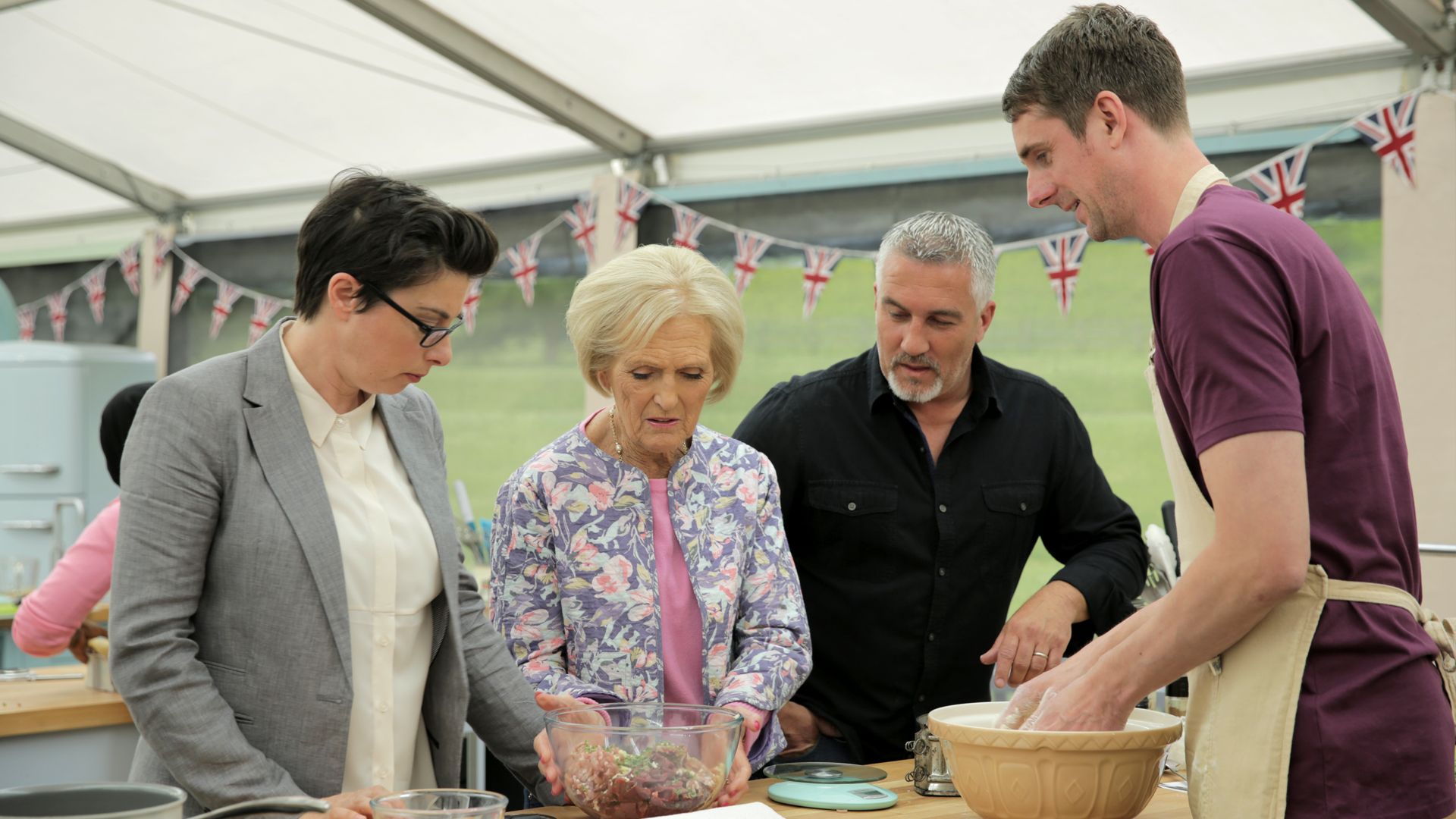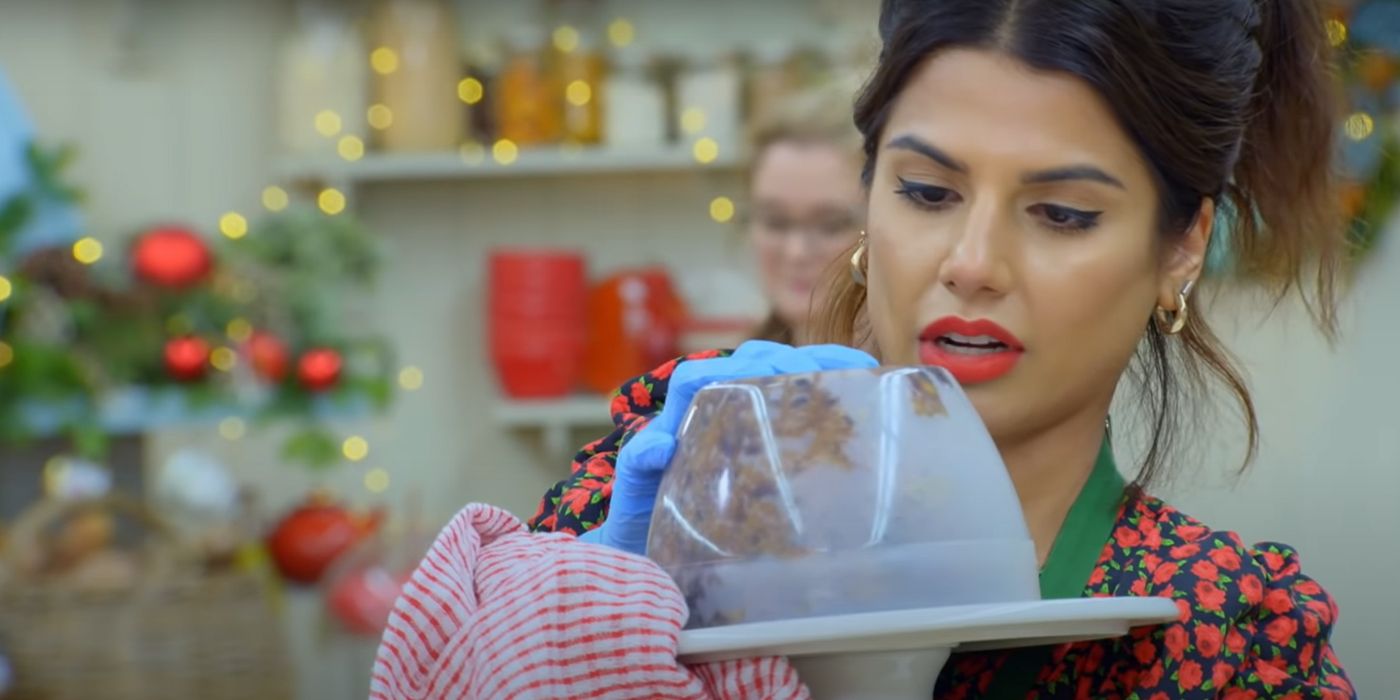There’s something cozy about most cooking shows. It’s easy to spend a whole day watching shows like Good Eats and The French Chef because they’re simple and easy, and you’ll most likely learn a thing or two about food without meaning to. Shows like Five Ingredient Fix and Wolfgang Puck’s Cooking Class will have you in the kitchen trying out new techniques that will really wow your dinner guests thanks to easy-to-follow instructions. However, we all know it isn’t always about learning to work in a kitchen; it’s about watching other people do it under pressure!
Or is it?
Shows like Cutthroat Kitchen, Chopped, MasterChef, Cupcake Wars, and Holiday Baking Championship have become all the rage in recent years, especially during times when everyone is stuck indoors. After all, what’s more exciting than watching people struggle to bake and decorate a thousand cupcakes in four hours, or throw away their sense of camaraderie with their fellow chefs by paying $100 to bar them from using knives while cooking? We want to see fierce competition, quite the far cry from the usual cozy nature of cooking shows.
However, how often does one really find themselves rewatching shows like these? They’re usually a watch once type of show. You want to see the winner, you do, and then it’s done. However, there is one show in this category that people do find themselves rewatching and eagerly awaiting new seasons of, and that is The Great British Bake Off.
What's to Love About 'The Great British Bake Off'?
First premiering in 2010, The Great British Bake Off takes 12 bakers from all over the United Kingdom (though, many contestants have roots in areas outside the UK!) and sets them up with three challenges each week to test their skill. Each episode, a constant is awarded the coveted “star baker” title, and another is asked to go home. Every week has a theme, whether it be cakes, breads, cookies, or a mix of desserts from a certain part of the globe. The three challenges each test a certain area of skill: the signature tests the baker’s personal recipes they use at home, the technical tests their ability to bake with minimal instructions, and the showstopper asks them to create a delicious and beautiful, well, showstopping piece. Judged by Paul Hollywood and Mary Berry (and later, Prue Leith), the series aims to judge bakers not of speed or astounding quantity, but quality and knowledge of baking technique.
Fundamentally, that last sentence is why we love The Great British Bake Off. While many popular American baking and cooking shows strive to put the contestant under pressure by giving them short time constraints, strange-bordering-on-unusable ingredients, and pitting the chefs against each other blatantly, The Great British Bake Off goes in the opposite direction. The setting is calm, usually outdoors, and lacking the frantic hustle of its American counterparts. It doesn’t ask its contestants to be fast; it asks them to be accurate. They give ample time for each challenge to allow for the bakers to plan and execute their bakes and expect them to understand that this competition is about the quality of their project and not how quickly they can get it done. This relaxing atmosphere and focus on the technique and storytelling of the baking (as each contestant gets to tell a little about why they chose their flavors and treat) is easy to watch. It’s not chaotic or cutthroat. It’s the kind of baking you would do in your kitchen, for your family. It’s easy to watch after a long day or amidst a hectic line up of holidays and events.
In addition to giving plenty of time, the show never forces ingredients on contestants. For example, Cupcake Wars usually involves a challenge that sets out a tray of strange ingredients like oysters, jalapeños, and bacon with other, more friendly ingredients added in. The judges often give higher praise to those that incorporate the less traditional flavors; however, despite supposedly boosting creativity, it often feels like it stifles it instead. However, The Great British Bake Off doesn’t have this issue. For both the signature and showstopper rounds, the bakers are assigned a dessert to make. However, they are not assigned ingredients or flavors. They are given free rein to decide what flavors they’d like to incorporate into their bake. This allows for a unique lineup of ingredients and influences among the contestants. It’s part of what helps you connect with the bakers; it’s fun to see what they will come up with and hear their stories and inspiration.
'The Great British Bake Off' Offers a Feel-Good Atmosphere
There’s also the fact that the series doesn’t focus on just one type of baking. The contestants are tasked with both sweet and savory bakes, as well as a variety of different baked goods that all require different knowledge and techniques. This makes it feel like a legitimate test of skill to see who the best baker of the bunch is. In this regard, seeing them fail a bake is almost as fun as seeing them win. It proves that they’re being challenged technically and that they’re learning and growing as bakers. That’s something you don’t see often in these types of shows, but it’s something that makes the audience feel good. Plenty of the show’s contestants that were eliminated have gone on to write cookbooks and open restaurants with things they learned through their time in the competition. It’s nice to know that they’re not completely disheartened by the loss or a small setback in the kitchen.
This leads us to another crucial point: the bakers on The Great British Bake Off aren’t out to get each other. They aren’t mean, or trying to sabotage each other. They’re friendly to one another. They joke and talk as they wait for their projects to finish baking, they try to help each other when things go wrong, and when one of them leaves, they wish them luck. Sure, they know they’re all competing against each other. At the end of the day, though, they don’t hate their fellow bakers. They love them and want them to succeed. Perhaps this is because the stakes of winning are relatively low in comparison with most American cooking competitions; you don’t win money for winning Britain's favorite bake-off. You win a cake stand. And flowers. Maybe you get a book deal or a TV appearance out of it, but really, you win a little fame by being Britain's sweetheart for a while. In a way, these lowered stakes are what make The Great British Baking Show the best of its kind to rewatch. You are able to focus more on the contestants themselves and see them thrive doing something they love with other people who feel the same, instead of watching people bash each other and struggle for the chance to win a bunch of money.
Even the judges aren’t mean to the contestants. Hollywood — our supposedly Simon Cowell-esque judge — is kindhearted with his criticism and never attacks the baker. Both Berry and Leith always seem to find something nice to say. Whenever a contestant leaves, it’s never with a “good riddance.” The judges shake their hands and give them hugs and words of encouragement. A competition where the judges are good sports can sometimes be hard to find — many people find the judges boring if they’re too nice, after all — but The Great British Bake Off defies that notion. It’s better to have a kind judge and helpful and fair criticism than a rude judge and a positively defeated contestant, this series says. And it’s right.
The Great British Bake Off defies the model of a reality competition at every turn. It aims not to watch the contestants struggle or buckle beneath the weight of the challenge, but to give them a chance to thrive under proper time allowances, creative freedom, and friendly rivalry. It gives you a chance to know the bakers and see their process, which gives the viewer not only a pleasant watching experience but a pleasant learning one, too. It understands that competition is about growth and learning, unlike American shows of the genre, and always remembers that at the core of food, there must be heart — or else even the best of bottoms will be soggy.



